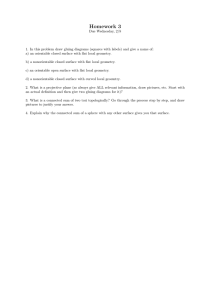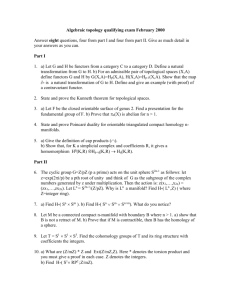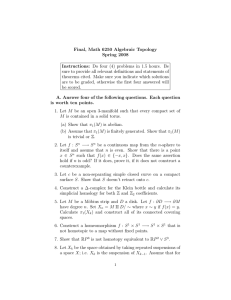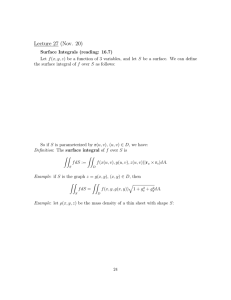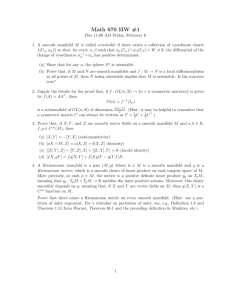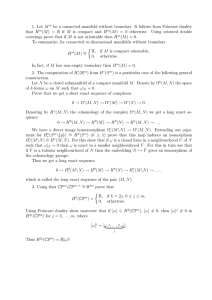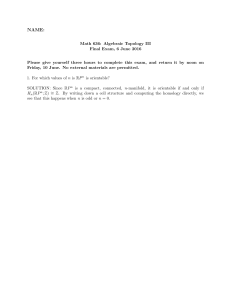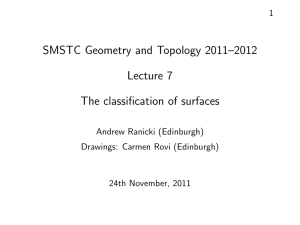Math 8250 HW #4
advertisement
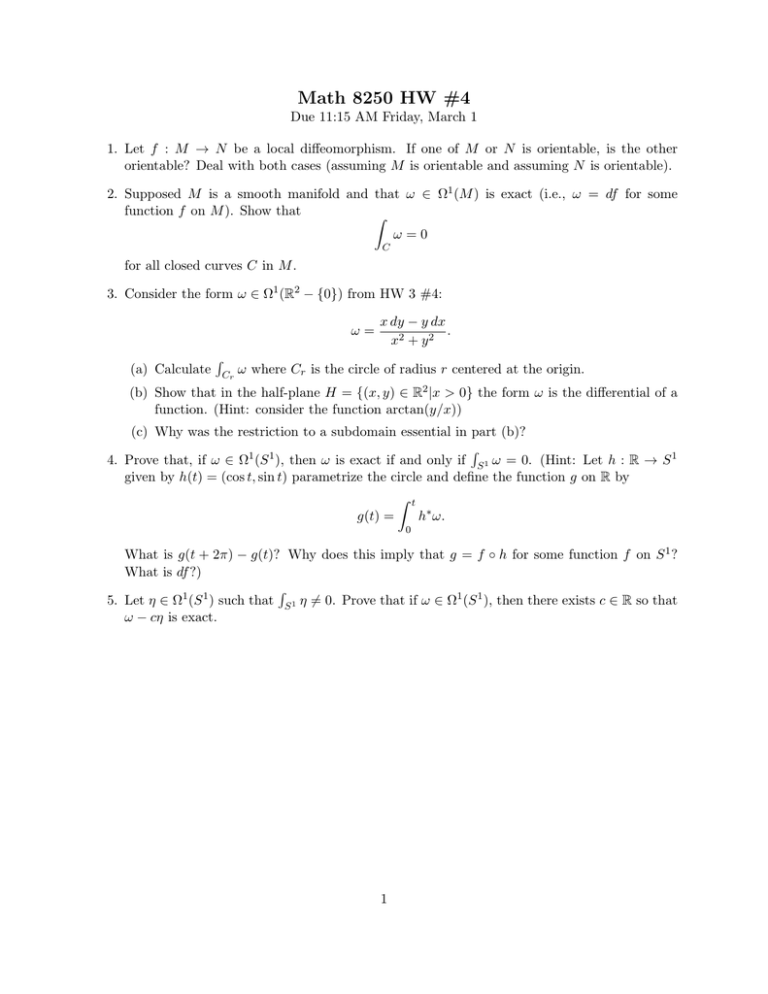
Math 8250 HW #4
Due 11:15 AM Friday, March 1
1. Let f : M → N be a local diffeomorphism. If one of M or N is orientable, is the other
orientable? Deal with both cases (assuming M is orientable and assuming N is orientable).
2. Supposed M is a smooth manifold and that ω ∈ Ω1 (M ) is exact (i.e., ω = df for some
function f on M ). Show that
Z
ω=0
C
for all closed curves C in M .
3. Consider the form ω ∈ Ω1 (R2 − {0}) from HW 3 #4:
ω=
(a) Calculate
R
Cr
x dy − y dx
.
x2 + y 2
ω where Cr is the circle of radius r centered at the origin.
(b) Show that in the half-plane H = {(x, y) ∈ R2 |x > 0} the form ω is the differential of a
function. (Hint: consider the function arctan(y/x))
(c) Why was the restriction to a subdomain essential in part (b)?
R
4. Prove that, if ω ∈ Ω1 (S 1 ), then ω is exact if and only if S 1 ω = 0. (Hint: Let h : R → S 1
given by h(t) = (cos t, sin t) parametrize the circle and define the function g on R by
Z
g(t) =
t
h∗ ω.
0
What is g(t + 2π) − g(t)? Why does this imply that g = f ◦ h for some function f on S 1 ?
What is df ?)
R
5. Let η ∈ Ω1 (S 1 ) such that S 1 η 6= 0. Prove that if ω ∈ Ω1 (S 1 ), then there exists c ∈ R so that
ω − cη is exact.
1
